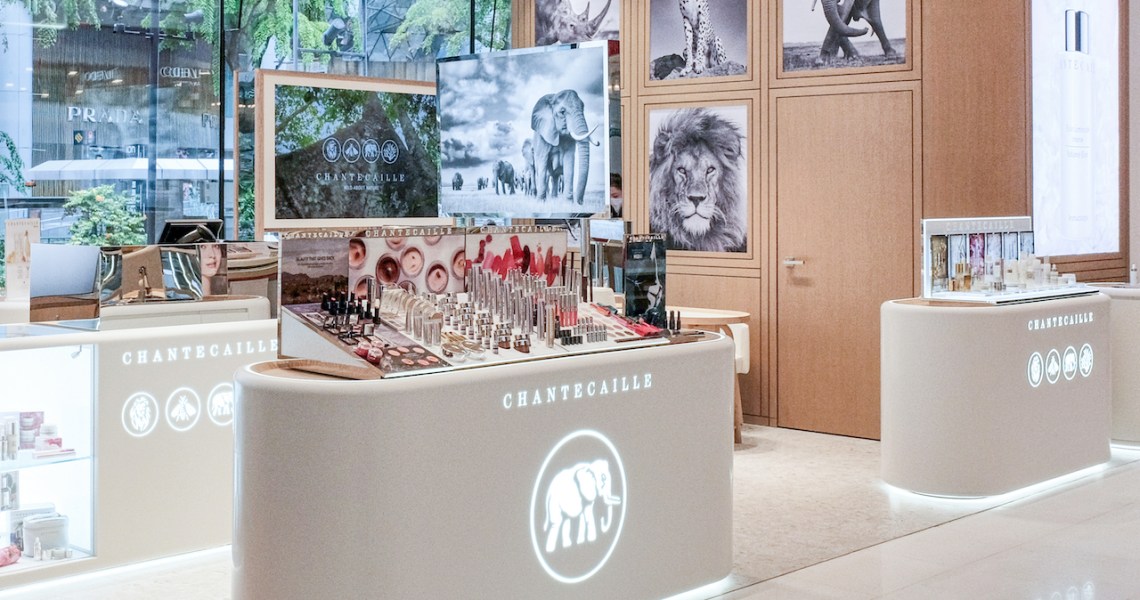This year was an expansive one for beauty acquisitions, between The Estée Lauder Companies acquiring Deciem in February, Unilever buying Paula’s Choice in June and L’Oreal Group acquiring Youth to the People in early December.
This week, there was a last-minute addition to the list when the German conglomerate Beiersdorf AG acquired the family-owned, 25-year-old beauty brand Chantecaille for an undisclosed sum. Beiersdorf valued Chantecaille at around $590 million and expects Chantecaille to make $100 million in sales this year.
For Beiersdorf, the acquisition fills a notable gap in its portfolio. While it owns many mid-range beauty and skin-care brands, including Nivea and Eucerin, it’s lacking in luxury brands, with only skin-care brand La Prairie among its luxe offerings. Chantecaille is a prestige brand with a higher price range — its lifting masks go for $165 — that will expand Beiersdorf’s high-end skin-care roster. Aside from Bieresdorf, P&G has sought to develop a prestige category with the acquisition of Farmacy skin care in November and Ouai hair care in December.
“Through the acquisition of Chantecaille, we are bolstering our portfolio in prestige beauty and strengthening our position, especially in the United States, China and Korea, which is a priority of our C.A.R.E.+ strategy,” said Vincent Warnery, CEO of Beiersdorf, in an emailed press statement. C.A.R.E.+, standing for courage, aspiration, responsibility and empathy, is a company-wide strategy that was implemented in 2019 to invest in new categories and areas, and fill gaps in Beiersdorf’s portfolio.
Both brands also have a presence in Asia, as well as a shared desire to grow there. For its part, Chantecaille opened four stores in China, South Korea and Singapore in 2020 and does 10% of its online business through Tmall. Meanwhile, Beiersdorf has partnerships with Alibaba, JD.com and the Chinese cross-border commerce platform NetEase Kaola.
It makes sense that Beiersdorf’s Asia ambitions would be served well by a new prestige brand. Prestige beauty recovered faster than other categories in 2021, dropping 17% in 2020 but growing by 11% in the first half of 2021, according to The NPD Group. In its third-quarter earnings report in November, Beiersdorf reported that sales in Asia grew by 11%, led by La Prairie, the sole prestige brand in its portfolio at the time.
Warnery also highlighted Chantecaille’s focus on sustainability and social good, calling the brand a “clarion voice for global environmental concerns.” Demand for sustainable skin care is high, with the market expected to be worth more than $22 billion by 2024, according to Statista. None of Bieresdorf’s other brands have a specific focus on sustainability, although Beiersdorf does have overarching sustainability goals, including reaching 100% renewable energy by 2025. Chantecaille uses post-consumer recycled paper in its products, has reduced all printed materials and has done away with disposable gift bags. Its products are vegan and cruelty-free, as well.
While Beiersdorf’s acquisition of Chantecaille is a step toward reaching that market, it doesn’t come without risks.
“This is definitely a sustainability play as, for big conglomerates, it’s easier to buy a company to get in the sustainability game versus trying to build that capability internally organically,” said Jonathan Treiber, CEO of RevTrax. “An acquisition will lead to a major culture shock for any business that is now a part of a much larger corporation. I usually expect talent from the smaller company to leave over the first 18 months, so retaining people, culture and innovation should be of the highest priority for Beiersdorf.”




